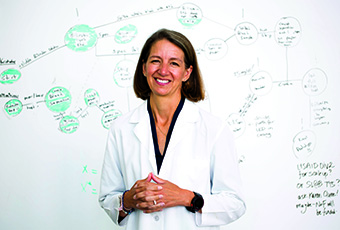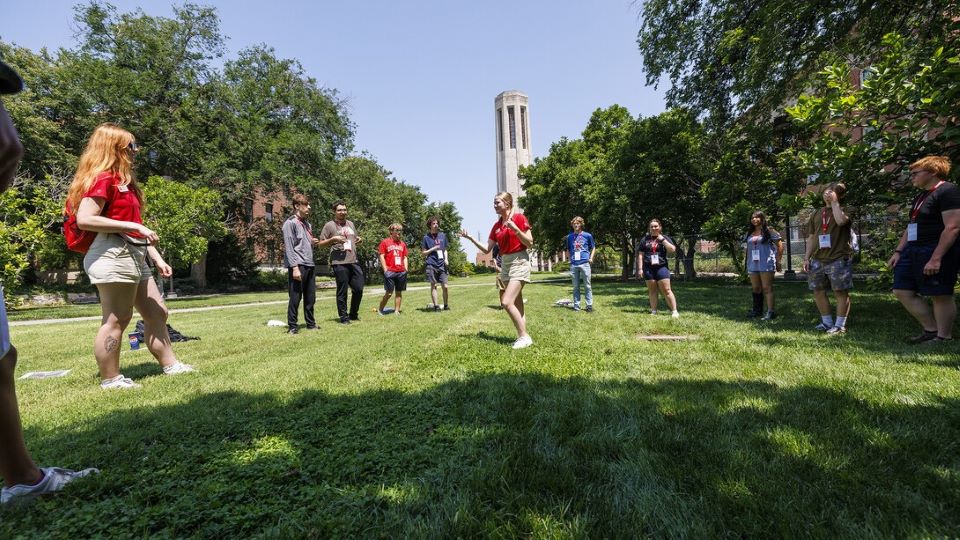
Last fall 23 people were named 2016 MacArthur Foundation Fellows including bioengineer Rebecca Richards-Kortum, a University of Nebraska-Lincoln graduate. Richards-Kortum, now 52 and at Rice University, was recognized with the so-called “genius” award for her innovative work to deliver low-cost medical technology to Third World countries.
The MacArthur is the latest accolade in a career of achievement. In 2008, Richards-Kortum was the first woman from Rice and the youngest member to be admitted to the National Academy of Engineering. She holds Rice’s highest academic rank of university professor and directs the Institute of Biosciences and Bioengineering and the Institute of Global Health.
Recently, she led development of a new form of fiber optic endoscopy that could improve early detection of cancer and precancerous lesions. After visiting a hospital in Malawi in 2005, where she saw broken and unusable equipment because of the unreliable power supply, Richards-Kortum became inspired to use her engineering skills to change what she saw.
She is a marathon runner and mother of six, including two daughters adopted from Ethiopia. Her husband, Philip Kortum, also is a Nebraska alumnus.
After growing up in Grand Island, Richards-Kortum came to the university expecting to become a math and science teacher, but her professors soon directed her to another path. She earned a bachelor’s degree in physics and mathematics from Nebraska in 1985, then attended the Massachusetts Institute of Technology, where she earned a master’s degree in physics in 1987 and a doctorate in medical physics in 1990.
***
Q: Did you have specific experiences while attending Nebraska that helped set you on the path to your career?
There weren’t a lot of role models for scientists and engineers, especially for women. I went to college planning to major in education and thinking that I would teach high school math and science. I was inspired by my freshman physics teacher, Paul Burrow. He was one of the best teachers I’ve ever met. He showed me what good teaching meant. During my sophomore year, I visited the office of physics department chair David Sellmyer. That visit changed my life.
Q: You conducted research with Sellmyer while you were still an undergraduate. How did that come to be arranged?
I was a first generation college student and I didn’t even know there was a thing called “research.” Dr. Sellmyer went out of his way to offer me a spot in his lab. I am forever grateful — it really did change my life.
Q: You graduated high school in Grand Island. Did your Nebraska upbringing play a role in the formation of your belief that all the world’s people deserve access to health innovation?
My parents taught me the importance of working hard, but also of standing up for what you believe in. I am grateful to have grown up in a community that shared these values — especially the idea that nothing is out of reach if you work hard enough.


